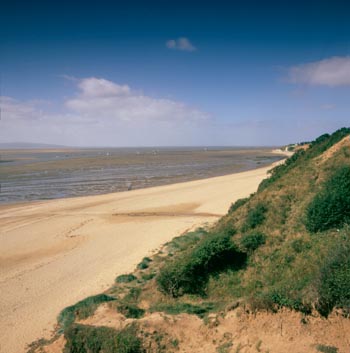
Most of England‘s 4,000 kilometres of coastal lines are privately owned with limited access to the public. But that could be just on its way to a change should the government agency Natural England be allowed to thread in its plan.
Natural England doesn’t demand free-for-all access to England’s beaches; instead it wants more free space for the people who want to enjoy natural beauty at the beaches. The agency has put forth a modest plan on the table wherein it suggests that a simple footpath be constructed along the coastal line where people can walk and absorb the panorama. The agency adds that this would actually help the environment in terms of pushing intensive farming from cliff tops and beaches.
Although modest and apparently without defects, this proposal by Natural England hasn’t failed to raise murmurs of discontent among other environment related organiations. The Royal Society for the Protection of Birds (RSPB) has already voiced its disclination towards the plan. Its head of conservation Mark Avery is apprehensive that such an increase in access for the English public would actually endanger the coastal wildlife. John Everitt, head of conservation at the Wildlife Trusts, seconds the notion. He is worried that cyclists and dogs would help contaminate the coastlines and that would be detrimental to the ecology along England’s sea coasts.
Doubts have also been raised on whether Natural England is capable of actually calling the shots on such a major issue after being formed only in October last year through the merger of English Nature, concerned with nature protection, and the Countryside Agency, pertaining to recreation and rural communities. But the organization’s chairman, Sir Martin Doughty, dismisses such talks and observes that the coastal access initiative dates back to the 1940s and is more about allowing the public to enjoy the countryside and nature without stepping out of the boundaries. Although he acknowledges that people might unknowingly tamper with wildlife, he provides an easy solution. He advocates the use of signposts and strict wardening along the coastlines and is convinced that such a move would make people aware of their immediate surroundings.
Natural England’s proposal seems to have met with a good amount of resistance that is expected to become stiffer in the coming weeks. Although a noble and people-friendly plan, it’s not without its defects and it remains to be seen whether Natural England can actually convince its critics that it can mend these loopholes and assure that coastal wildlife won’t be threatened by human inteference.
Image Source: Supportal
Source: The Telegraph


